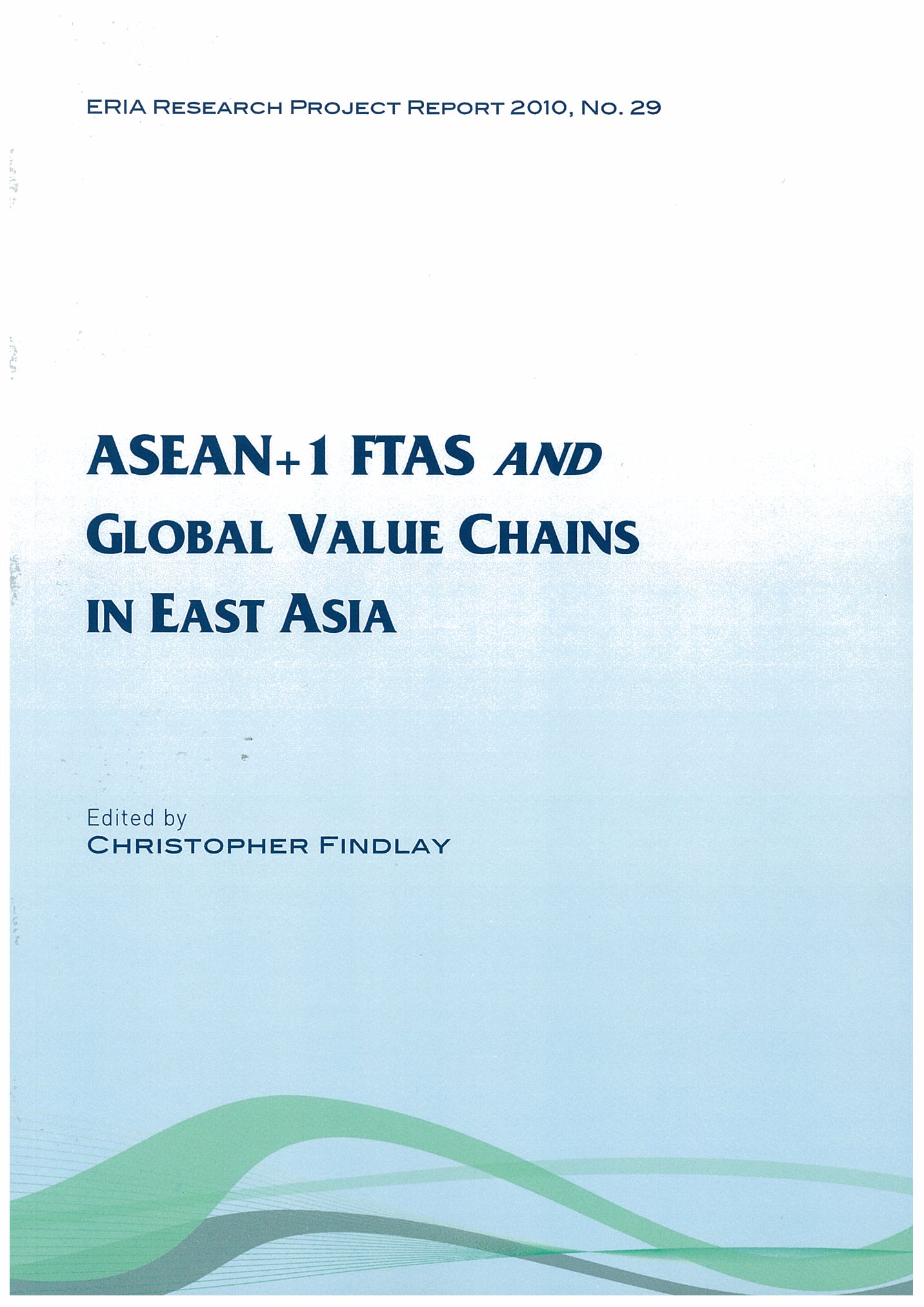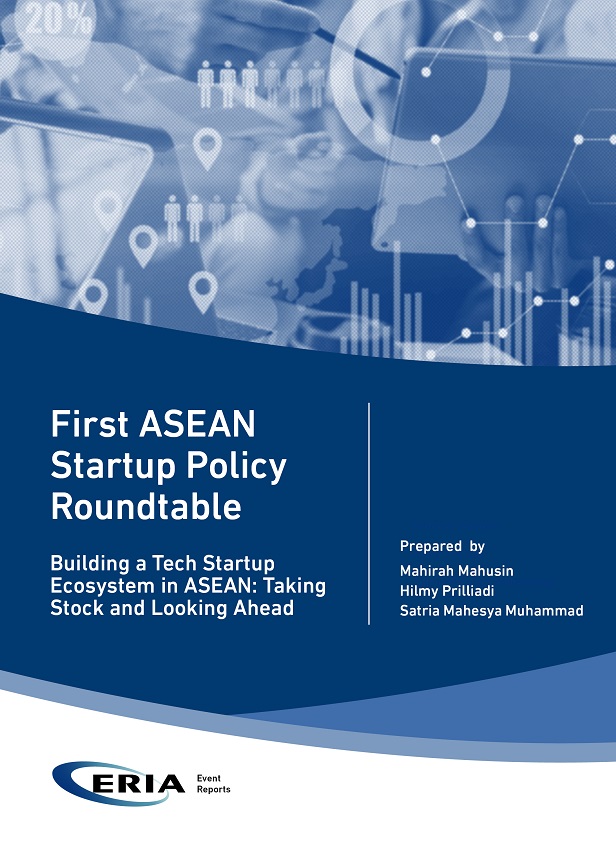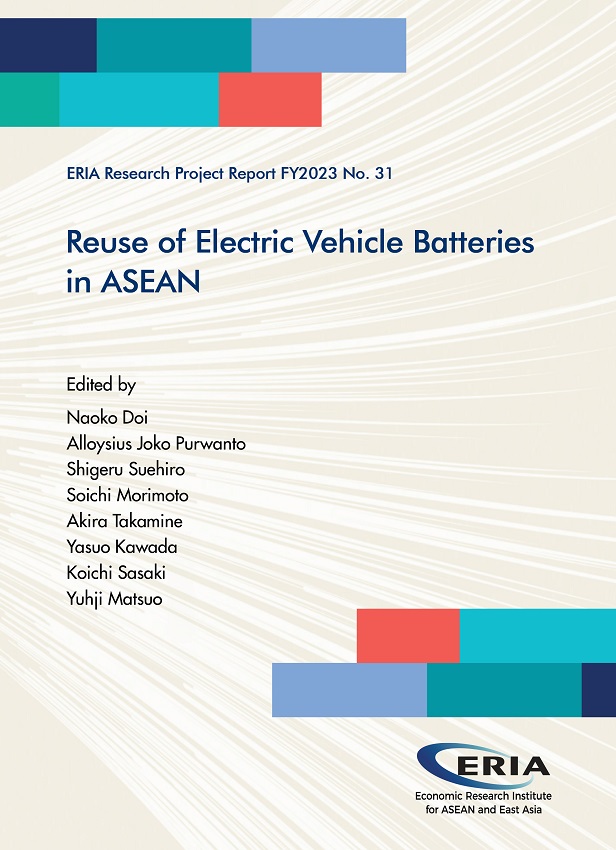ASEAN +1 FTAS and Global Value Chains in East Asia

Date:
1 March 2011Category:
ASEAN, Finance and Macroeconomy, Industry and Manufacturing, Investment, Regulation and Governance, TradeType:
Research Project ReportsTags:
industry and manufacturing, MacroeconomyPrint Article:
ASEAN economies as a group have signed free trade agreements with China, Japan, Korea, India and Australia/New Zealand. There is now an interest in forming a larger regional agreement, for a couple of reasons. The first is that the gains from integration are greater across wider areas with deeper coverage - there is also an interest in deepening the commitments to integration. The second reason is that there is a concern that the proliferation of trade agreements adds to the costs of decision-making in international business. A new wider economic agreement could be constructed in a new set of negotiations, but the track that is preferred by ASEAN is to build up from the '+1' agreements into a new 'ASEAN++' structure. There are advantages in this approach given the degree of common membership of the agreements under consideration. There is also a significant risk that any attempt to adopt a top-down approach based on a new region-wide agreement could add yet another agreement to the existing 'noodle bowl' and possibly one which is less liberal, given the difficulty of reaching agreement across the larger number of participants. The focus in this project is on the principles that might be applied in this circumstance and for these purposes. The decision was made to concentrate on trade facilitation, rules of origin, services and investment.
List of Project Members
PROFESSOR CHRISTOPHER FINDLAY: (PROJECT SUPERVISOR) School of Economics, University of Adelaide, Australia.
MR MICHAEL CORNISH: School of Economics, University of Adelaide, Australia.
DR ANANDA JAYAWICKRAMA: Department of Economics, University of Peradeniya, Sri Lanka.
ARCHANUN KOHPAIBOON: Associate Professor Faculty of Economics, Thammasat University, Bangkok, Thailand.
DR ERLINDA MEDALLA: Senior Research Fellow, Philippine Institute for Development Studies (PIDS), Philippines.
PROFESSOR RASYAD PARINDURI: CNottingham University Business School, University of Nottingham, Malaysia Campus, Malaysia.
MARIE ISABELLE PELLAN: Institute for International Trade, University of Adelaide, Australia.
MS MAUREEN ROSELLON: Philippine Institute for Development Studies (PIDS), Philippines.
SHANDRE M. THANGAVELU: Associate Professor Department of Economics, National University of Singapore, Singapore.
DR MARN HEONG WONG: Lee Kuan Yew School of Public Policy, National University of Singapore, Singapore.
DR NOBUAKI YAMASHITA: School of Economics and Finance, La Trobe University, Melbourne, Australia.
Full Report
Contents
CHAPTER 2: Trade in Supply Chains between ASEAN and China Development and Implications
CHAPTER 3: Trade Facilitation in ASEAN and ASEAN+1 FTAs An Analysis of Provisions and Progress
CHAPTER 5: Services Liberalization in the 'ASEAN Plus' Free Trade Agreements
CHAPTER 6: ROOs in ASEAN+1 FTAs and the Value Chain in East Asia
CHAPTER 7: The Case of the Electronics Industry in Malaysia
CHAPTER 8: The Case of the Textiles and Clothing Industry in Sri Lanka
CHAPTER 9: The Case of the Philippine Automotive and Electronics Sectors
CHAPTER 10: FTAs and the Supply Chain in the Thai Automotive Industry




